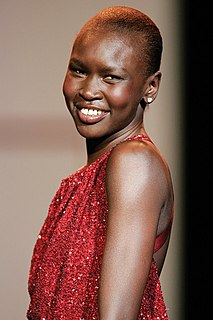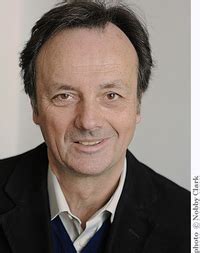A Quote by Alek Wek
I learnt just how little it takes to survive, which is why I don’t waste things – food, money, friendships or opportunities.
Quote Topics
Related Quotes
I was really surprised to learn that there is no food date label standardization, which contributes significantly to why we waste so much food, which generates methane emissions, a powerful greenhouse gas, in landfill, and means that we are using lots of land, water, fertilizer and energy to produce food that no one eats.
After all, does it make sense to be chucking things like glass, paper, cardboard, wood, metals, plastics, and food waste into holes in the ground? No, it doesn't; especially when someone will pay you good money to take them off your hands or, in the case of wood and food waste, when you can turn them into renewable energy.
We are snared into doing things for which we get called names, and things for which we get hanged, and yet the spirit may well survive - survive the condemnations, survive the halter, by Jove! And there are things - they look small enough sometimes too - by which some of us are totally and completely undone.
Over two thousand years ago, Aristotle taught us that money should be durable, divisible, consistent, convenient, and value in itself. It should be durable, which is why wheat isn't money; divisible which is why works of art are not money; consistent which is why real estate isn't money; convenient, which is why lead isn't money; value in itself, which is why paper shouldn't be money. Gold answers to all these criteria.
This is not just a simple story of "money can't buy happiness." Or maybe that's just what it is. And if it is, why shouldn't it be? Because if this is something we are already supposed to know, then why don't we know it? Why do we chase and scrabble and fight for things to flaunt, why? Why do we reach for power over other people, and through the thin superiority of our possessions, believe we have it? Why do we let money make people bigger, and allow those without it to be made smaller? How did we lose the truth in the frantic, tribal drumbeat of more, more, more?
Why do we send valuable items like aluminium and food waste to landfill when we can turn them into new cans and renewable energy? Why use more resources than we need to in manufacturing? We must now work together to build a zero waste nation - where we reduce the resources we use, reuse and recycle all that we can and only landfill things that have absolutely no other use






































